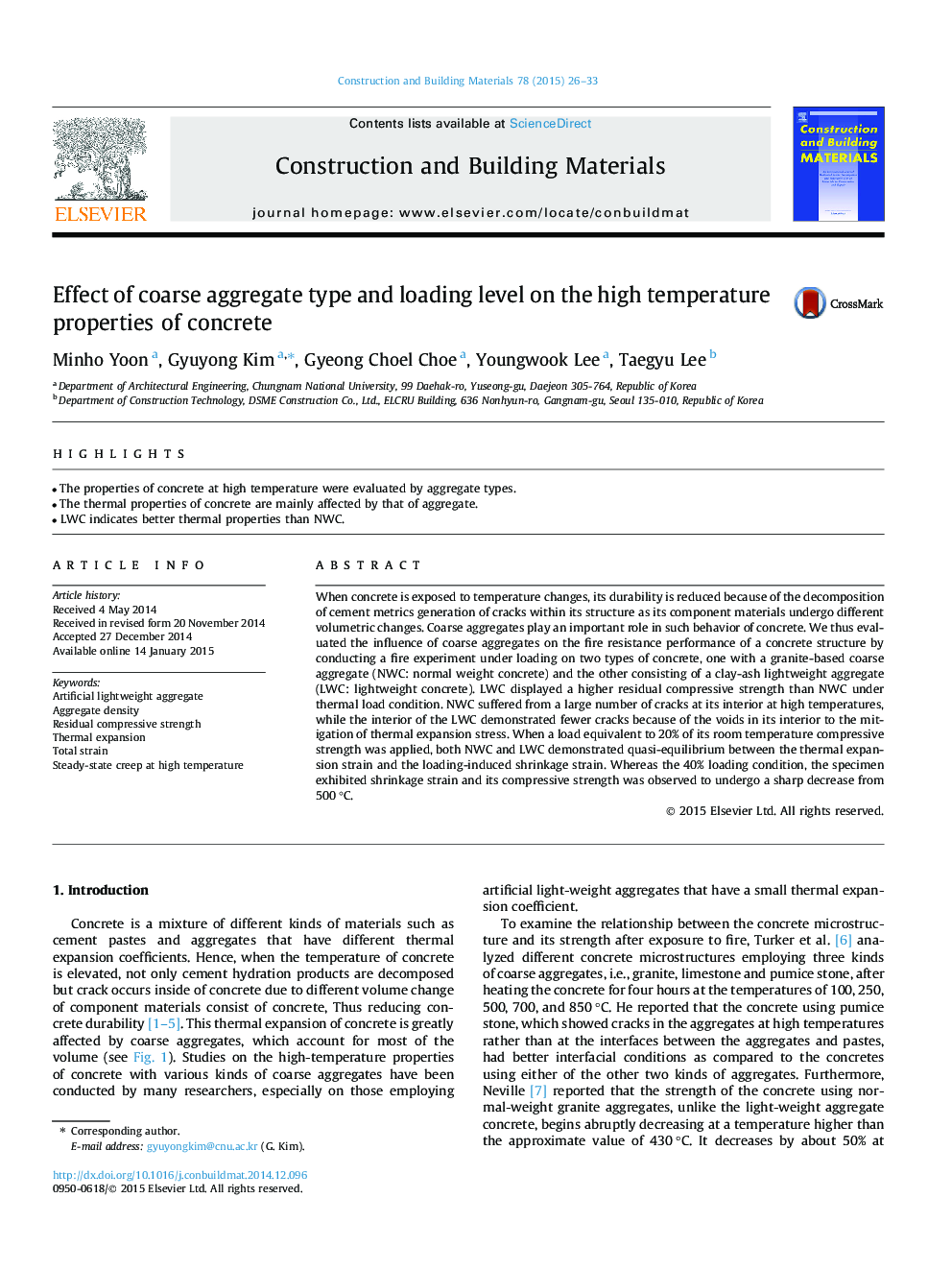| Article ID | Journal | Published Year | Pages | File Type |
|---|---|---|---|---|
| 257089 | Construction and Building Materials | 2015 | 8 Pages |
•The properties of concrete at high temperature were evaluated by aggregate types.•The thermal properties of concrete are mainly affected by that of aggregate.•LWC indicates better thermal properties than NWC.
When concrete is exposed to temperature changes, its durability is reduced because of the decomposition of cement metrics generation of cracks within its structure as its component materials undergo different volumetric changes. Coarse aggregates play an important role in such behavior of concrete. We thus evaluated the influence of coarse aggregates on the fire resistance performance of a concrete structure by conducting a fire experiment under loading on two types of concrete, one with a granite-based coarse aggregate (NWC: normal weight concrete) and the other consisting of a clay-ash lightweight aggregate (LWC: lightweight concrete). LWC displayed a higher residual compressive strength than NWC under thermal load condition. NWC suffered from a large number of cracks at its interior at high temperatures, while the interior of the LWC demonstrated fewer cracks because of the voids in its interior to the mitigation of thermal expansion stress. When a load equivalent to 20% of its room temperature compressive strength was applied, both NWC and LWC demonstrated quasi-equilibrium between the thermal expansion strain and the loading-induced shrinkage strain. Whereas the 40% loading condition, the specimen exhibited shrinkage strain and its compressive strength was observed to undergo a sharp decrease from 500 °C.
